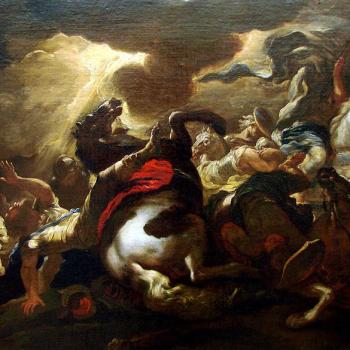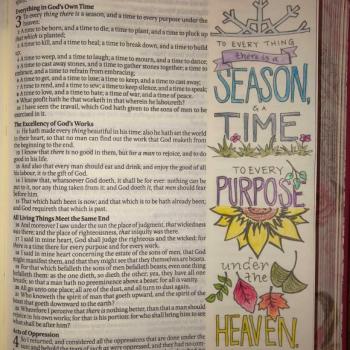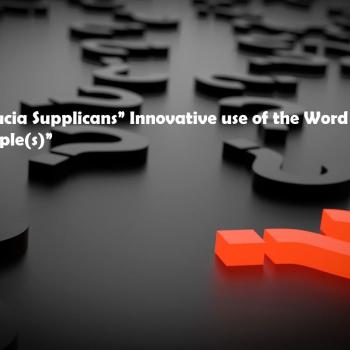Two: We don't really believe that we are all God's children.
To paraphrase Beethoven's Ode to Joy, "we are all sisters and brothers under God's gentle wings." No one would deny that . . . publicly. But deep down inside and behind closed doors, all of us -- left and right, right and left -- think that some of us are more God's children than are others. Even when we talk about being inclusive or accepting, we are (in truth) only inclusive or accepting of some, not others. Prejudice endlessly reinvents itself and none of us are as comfortable with the "other" as we argue that we are. We are all just more comfortable with some of the "others."
Three: We are all fairly confident that we understand God better than others.
Commitment in the face of uncertainty is the hallmark of spiritual, emotional, and intellectual maturity. The uncertainty and the requisite humility that should accompany those commitments have nothing to do with diffidence and doubt. It is the necessary modesty that should always mark the assertions we make about the will of God.
But that kind of humility is a tough suit to wear. It requires self-examination. It forces us to listen to others and go on listening to one another. That takes time, patience, and energy. Most of us find that hard to do some of the time. Some of us find it hard to do it at all. And when it is hard, we punt the uncertainty and claim we know things we can't know.
So, again, why do these spiritual dispositions make it easier for fear, blaming, and laziness to take hold?
Because without a larger spiritual commitment, it is just easier to damn one another.
If all we believe matters are the issues of the moment, then the moment can be negotiated in that way. Who cares? Why care? History? Posterity? How much can those possibly matter in a cosmic vacuum?
But to trust God, acknowledge that we are all God's children, and practice humility obliges us to have more than a point of view about the affairs of the moment. They obligate us to take responsibility for the problems themselves and the community we forge together in solving them. And that's hard. But it's more likely to yield a solution than damning one another.
Check back every Monday for the latest column in The Spiritual Landscape.





